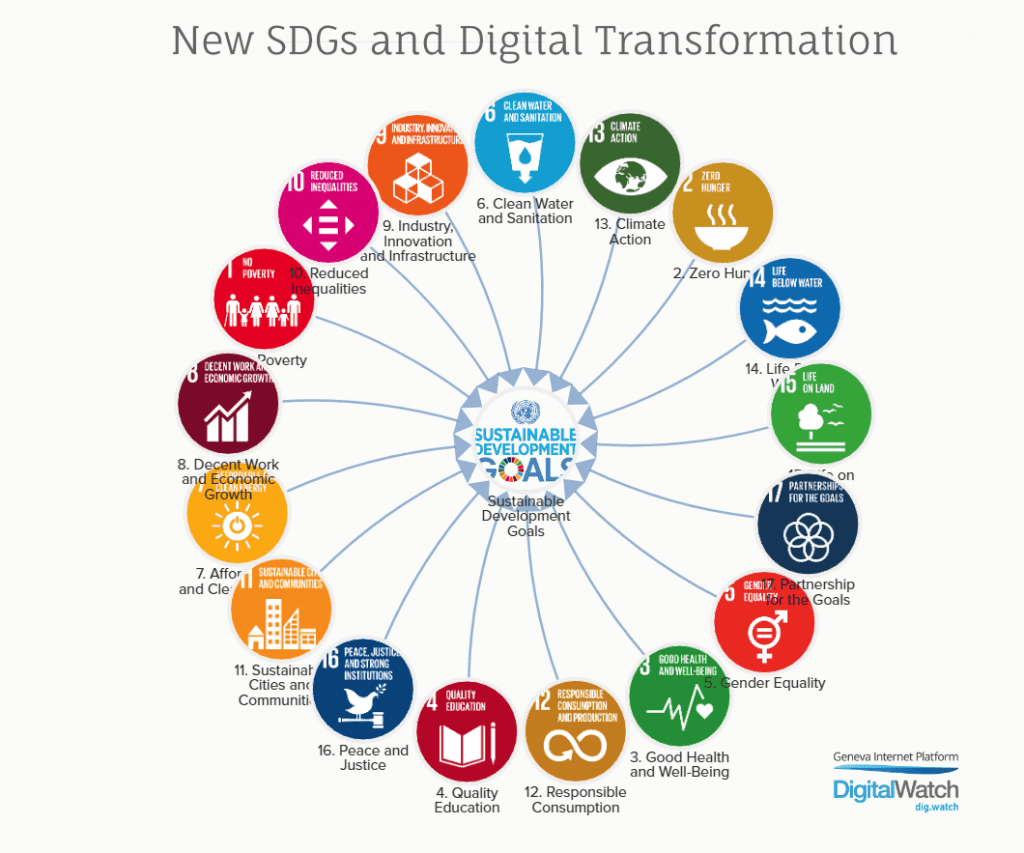Digital development at UNGA78: Shaping the future through inclusion and capacity building
The 78th UNGA General Debate revolved around the idea of shaping a more promising future for the upcoming generations. Many nations acknowledged the profound importance of incorporating digital advancements into their development plans to attain broader global objectives and harness the transformative potential of digitalization.

Closing digital gaps: A path to universal access
The importance of addressing the challenges posed by the digital age took centre stage at the General Debate of the UNGA 78. Leaders from various countries highlighted the pressing issues related to digitalisation and its impact on their respective societies. Bridging the digital divide, ensuring equal access to digital opportunities, and using technology for the greater good of society were common themes. Let’s delve into the insights shared by these leaders from around the globe.
This summary is based on the following statements….
- José Ramos-Horta, President of Timor-Leste
- Robert Abela, Prime Minister of Malta
- Ranil Wickremesinghe, President of Sri Lanka
- Mia Amor Mottley, Prime Minister of Barbados
- Alberto Fernández, President of Argentina
- Giorgia Meloni, Prime Minister of Italy
- Ralph Gonsalves, Prime Minister of Saint Vincent and the Grenadines
- Robert Rea, Head of the Delegation of Canada
- Hamza Abdi Barre, Prime Minister of Somalia
- Tobias Billström, Minister for Foreign Affairs of Sweden
- Lejeune Mbella Mbella, Minister for External Affairs of Cameroon
- Subrahmanyam Jaishankar, Minister for External Affairs of India
- Demeke Mekonnen Hassen, Deputy Prime Minister of Ethiopia
- Benjamin Netanyahu, Prime Minister of Israel
- Samuel Matekane, Prime Ministe of Lesotho
- Nataša Pirc Musar, President of Slovenia
- Charles Michel, President of the Council of the European Union
- Pushpa Kamal Dahal, Prime Minister of Nepal
- Vivian Balakrishnan, Minister for Foreign Affairs of Singapore
- Gaston Alphonso Browne, Prime Minister of Antigua and Barbuda
- Archbishop Paul Richard Gallagher, Secretary of Relations with States of the Holy See
- Xavier Espot Zamora, Head of government of Andorra
- Aleksandar Vučić, President of Serbia
- Denis Ronaldo Moncada Colindres, Minister for Foreign Affairs of Nicaragua
- Alexander Schallenberg, Federal Minister for European and International Affairs of Austria
- Pedro Sánchez Pérez-Castejón, Prime Minister of Spain
- Rumen Radev, President of Bulgaria
- Gabriel Boric Font, President of Chile
- Yoon Suk Yeol, President of South Korea
- Thórdís Kolbrún Reykfjörd Gylfadóttir, Minister for Foreign Affairs of Iceland
- Nanaia Mahuta, Minister for Foreign Affairs of New Zealand
- Enrique Austria Manalo, Secretary for Foreign affairs of the Philippines
- Kishida Fumio, Prime Minister of Japan
- Yvan Gil Pinto, Minister for Foreign Affairs of Venezuela
- Arnoldo Ricardo André Tinoco, Minister for foreign of Costa Rica
- Albert II, Prince of Monaco
- Olaf Scholz, Chancellor of Germany
Highlights on digital developments from UNGA 78
Digital divide
- Importance of the Global Digital Compact for bridging the global digital divide (Singapore)
- Call for developed nations to fulfil their responsibilities in technology transfer (Indonesia)
- Support for international initiatives for bridging digital divide (Republic of Korea, Namibia, Uruguay)
Inclusion
- Inclusion of women and children in digital developments (Timor-Leste)
- Connecting remote communities (Samoa)
- Impact of digital inclusion on providing healthcare, position of girls and women (Lesotho)
Capacity development and training
- Prioritise equipping citizens with essential digital skills (Malta)
- Launch of the Digital Force Platform for supporting small states in digital developments (Singapore)
- Providing resources for digital literacy (Georgia)
- Learning and skills development through the integration and use of digital technologies (Ewsatini)
- Focusing on digitalisation and education (Serbia, San Marino)
- Nurture digital skills through investment in education as a global public good (Morocco)
Infrastructure and digital public goods
- Support for digital public infrastructure (India, Rwanda)
- Responsible use of new technologies to combat the global climate crisis, pollution, and biodeversity loss (Holy See)
- Development of self-sovereign identity as a cornerstone for delivering digital services (Greece)
- Plans to launch digital platform for humanitarian support and disaster response (UAE)
UN and multilateral initiatives for digital development

- Support for UN 2.0. and ‘Quintet of Change‘ that aims to provide the Member States with cutting-edge capabilities in data, digital innovation, and expertise (Namibia)
- Global Digital Compact should harness the potential of digital technologies to accelerate the achievement of the SDGs (Bulgaria)
- Support for the Summit of the Future and a Global Digital Compact (Bhutan)
- Support for international cooperation for digital developments (Latvia, Malta, Mauritius)
- International solidarity and cooperation in scientific research in areas such as AI (Morocco)








